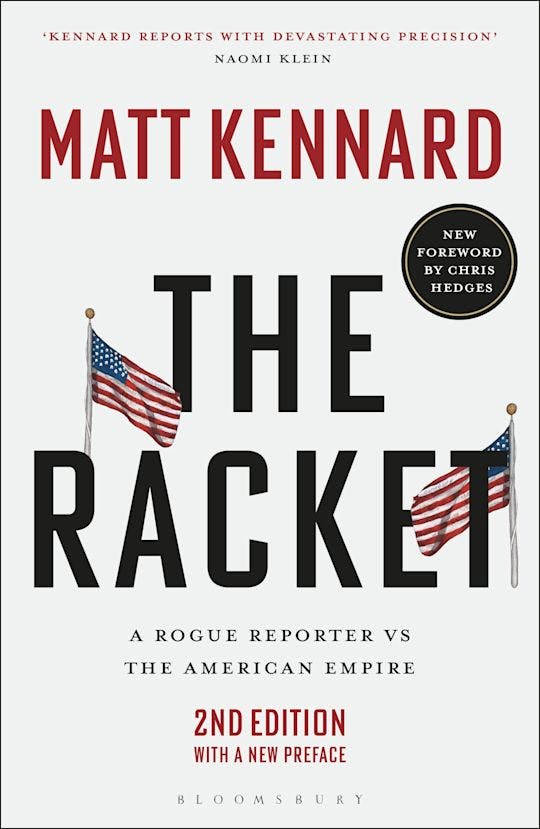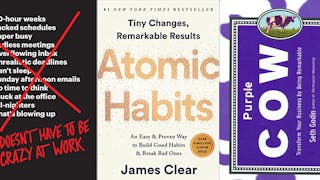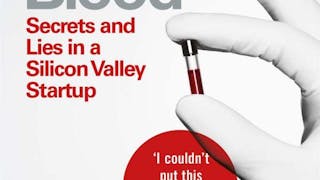The Racket: A rogue reporter vs the American empire
By Matt Kennard. Book review
How the American empire uses its power to make its billionaires from around the world wealthier

This book is a journalistic piece that dives deep in some stories around the world, from a journalist who used to work for Financial Times, uncovering some nasty secrets and his opinion of how the global system works.
As a conclusion, America the empire is an organization which billionaires around the world sign up to, to helps them become richer. Even if those riches are sucked up from Americans themselves. Astonishing.
The methods and tools used to subdue the public, is dubbed as rackets.
Here are few quotes that caught my attention.
Introduction
...they were not the politicians but the big-money men behind them, the puppeteers who made everything move.
He begins his book with this powerful conclusion. We've always known that puppeteers control the stage, especially in the Middle East. The book provides detailed accounts of events that made headlines for all the wrong reasons. What stands out, however, is the revelation that the true beneficiaries are not the leaders striving to tilt the odds in their nations' favor, but rather the money mongers who are solely driven by greed.

US should be allowed the hundreds of military bases that disfigure sovereign states all around the world.
On how power corrupted the minds of the Imperial Americans. They think it is only natural for them to have bases all over the world, but when Rafael Correa, president of Ecuador challenged them to allow Ecuador to have a military base in Miami, if they wanted to keep theirs in Ecuador, they found that preposterous.
85 people, own half the world’s wealth while more children die of starvation every year than died in the Holocaust.
This was a 2014 statistic from OXFAM. Today, the world’s richest 1% own more wealth than 95% of humanity. I cannot help but recall the verse in the Quran:
Whatever spoils of war Allah restored to His Messenger from the inhabitants of the villages belongs to Allah, and to the Messenger, and to the relatives, and to the orphans, and to the poor, and to the wayfarer; so that it may not circulate solely between the wealthy among youAl-hashr 7.
مَّآ أَفَآءَ ٱللَّهُ عَلَىٰ رَسُولِهِۦ مِنْ أَهْلِ ٱلْقُرَىٰ فَلِلَّهِ وَلِلرَّسُولِ وَلِذِى ٱلْقُرْبَىٰ وَٱلْيَتَٰمَىٰ وَٱلْمَسَٰكِينِ وَٱبْنِ ٱلسَّبِيلِ كَىْ لَا يَكُونَ دُولَةَۢ بَيْنَ ٱلْأَغْنِيَآءِ مِنكُمْ ۚ وَمَآ ءَاتَىٰكُمُ ٱلرَّسُولُ فَخُذُوهُ وَمَا نَهَىٰكُمْ عَنْهُ فَٱنتَهُوا۟ ۚ وَٱتَّقُوا۟ ٱللَّهَ ۖ إِنَّ ٱللَّهَ شَدِيدُ ٱلْعِقَابِ
This verse was in the context of war, and how the spoils of war should be distributed. The legally acquired booty. I bet every one of those 85 blood suckers is a warlord. Imagine if they had to give back 20% of their war-generated wealth!
Creating a modern-day slave state

The mass privatization of state-run assets and the turning of Haiti into a Caribbean sweatshop – via an export-led garment production and cheap labor model that the US and the IFIs had been pushing from the mid-1990s through the 2000s – were now distinct possibilities.
Privatization of state assets should be prohibited. It is the backdoor money mongers get access to the state's natural resources, to steal and get rich. Privatization of water, food, and fuel is prohibited in Islam. One more reason the Western Imperialism fights Islam.
Chicago Boys is a term which refers to the University of Chicago economists who helped dictators impose neoliberal capitalism in its early stages.
Read about the Chicago boys. The author uses the term to describe Michel Martelly of Haiti.
The racket
Debt would be used to strangle and crush any peoples that tried to free themselves from the shackles of the order being imposed
The tools to subdue nations begin with debt. The IMF: The International Monetary Fund, the World Bank Group (previously IBRD: International Bank for Reconstruction and Development), are tools to keep poor people worrying about paying off interest of loans, depriving them the ability to come up with real and creative solutions for their poverty.
Globalization is what we in the Third World have for several centuries called colonization.
–Director of the Third World Network. This isn't news for those living in the Middle East. The author goes into detailed accounts of how these tools help dictators of countries, especially rich in natural resources. Usury, and any shape of usury, no matter how small the amount is, and how indirect it is attained, is prohibited in Islam. Yet another reason to fight Islam.
Rigging the system

He then says: “Your Congress and your Government is carrying out a policy of relief and reconstruction today chiefly as a matter of national self-interest.” Simple as that.
Speaking of the Marshall Plan, and the effect of it on Europe and the Third World market, that bounced back to the American market.
the effects of US imperialism are inevitably worse for women
One of the basic realities that defeats all feminists around the global West about strong independent women!
By enforcing this slogan, they simply rip the right of protection off women, it's like asking one-year-olds to feed themselves to be independent! The reality is, women are not strong, nor independent. In conflicts, women are the biggest losers.
Cursing your riches
One of the oldest money-making schemes of the racket is the pursuit of the natural minerals under the ground of another country.
The gulf is full of oil. We cursed oil many times. Though I know it isn't the only riches we have.
you pay no taxes or royalties on the people’s minerals and then act like Jesus Christ come to save the natives with schools and hospitals.
How foreign investments created projects that destroyed agriculture, environment, infrastructure and any chance of development, yet avoid taxes in their home country.
When a country decides that its own people, instead of a foreign company, should profit from the minerals under their own ground at a fair price, foreign companies call this “resource nationalism”, a pejorative term.
I remember a similar term being spoken of negatively: Saudization. It is negative because it is applied incorrectly, and it obviously does not touch American assets in Saudi Arabia.
The mob
That was standard racket-speech: of course, we were only there at the request of a government. The fine print is important, though: we happened to install this government.
This is what they told the Iraqis as they destroyed their country. They use the UN security council to back them up, but they eventually ignore the UN if they don't agree. That is a pattern that continues into 2024.
With friends like these

At the time of writing, in August 2014, the Israelis have killed more than 2,000 Palestinians in Gaza, the vast majority civilians. There is talk in the mainstream Israeli media about depopulating Gaza and turning it into an Israeli tourist attraction.
It's 2024, the genocide of Gaza continues, the same promotion to depopulate Gaza continues, and the same distraction to the ethnically cleansing the West Bank persists.
United States has vetoed all the subsequent resolutions brought against its client – that amounts to about 40 vetoes since 1972, all of which blocked votes unanimously supported by the other powers on the Security Council.
The USA have been abusing the veto for too long. This year of genocide was the heaviest, and it will result in the isolation, and hopefully the expulsion of the USA from the UN, but it stands to show this has been going on for decades.
I think Israel is actually the tail wagging the dog. Israel has more power there than the US does.
Note this was written in 2014, and last edition in 2024. This has finally come out to the public, as Americans are waking up to the fact that Israeli
lobbies control most of the foreign policy of the USA. As if the USA is meant to serve the Zionist project in the Middle East.
Might is right

Fed up with the love-in at Columbia Journalism School, I asked Kissinger in front of his enraptured audience how he slept at night. “Do you think you are morally superior to me?” he asked after a pause. “Yes. I do,” I answered confidently,
This occurred while the author was still a student in Columbia University. In a book in 2001, a journalist was specific about the genocides committed by Kissinger, so it was public knowledge, students of Journalism ought to have known about. Yet, obedience to the racket was rewarded.
War on hope
USAID’s programs are not charity … they are not only from the American people, as the agency’s motto says, they are for the American people.
The other day, I went into a tweet useless rant with an American who said: USAID was there to help those nations, ungrateful! Some people still live in that bubble, but we have seen the other side of this racket. And we know.
They were teaching them about representative democracy not participatory democracy … It was clearly to create leaders for the opposition.
Dare I say more? The USAID not only pushed their version of submissive democracy, but they also pushed their agenda in terms of faith. Nothing hurts a racketeer than someone who worships one God, and refuses to budge to other false gods. We have seen USAID confuse the Westerner poor citizen about basic facts: the gender they were born with. They have yet to convince the Arab countries that adultery is okay. They have not succeeded.
In one incident, USAID and other similar agencies sponsored a giant tech event in Jordan. But it had to find a way to push their agenda of confusion even if it had no connection to tech. So they added a segment that was titled making stories in tech,
and hosted a liberal lowlife who did not shy away from pushing hints to her gender freedom activism,
which really did not mean anything, and the result was quite laughable. I left early.
The first peoples of America and their land
The racketeers work to keep the poor world underdeveloped, and they do the same with the tribes within their own borders.
Not only do they target the world, those vicious billionaires don't mind keeping the majority of their own people under the reign of their racket too. Banks, loans, casinos, are to name a few of the tools.
Working America
Student debt had increased nearly sevenfold from $80 billion in 1999 to $550 billion at the end of June 2011.
The fact that they let you pay later, is why education is so expensive. Same goes for home prices. So everyone can have an education, and a home. But then they are caught in a rat wheel to pay for it for the rest of their lives. Keeping them busy paying off debt, places them under control.
Destitute America

The racket does not want the embarrassment of people dying of hunger in the richest country in human history, but to have any sort of life, well, that would require more than $32 a week.
The current state of America, with so many homeless, and barely alive, is an embarrassment.
Turf war
...the murderous thug Christopher Columbus thought he had arrived in the Indian subcontinent but had actually “discovered” the (already inhabited) Americas.
Matt is an honest journalist, speaks his heart, doesn't miss a beat.
He had to be reinstated because the people of Venezuela were too powerful and alive to their plight to watch history be repeated.
Awareness is crucial. People fell for the same trick in Egypt. They are deliberately kept naive and uneducated.
Revolutionaries
...it seems now that they forced Mubarak to step down to save the regime, not to break the regime
Looks like they wanted to save the regime from the Muslim Brotherhood. Mursi never had any jurisdictions, he was placed as a punching box. People's lack of education let them fall into it blindly.
Successful defiance
but the secular left can now grow and will undoubtedly become more significant.
Of Tunisia. Matt thought the secular left would flourish. There is no left in Islamic countries. It's a western concept that does not fit. We all know that. Matt as a Westerner doesn't understand that. This book was written in 2014, a look at Tunisia today just proves it. It's a dictatorship. All over again. Typical and expected.
liberating women and abolishing polygamy.
Again, Matt as a Westerner is too narrow minded to see the whole picture, Islam is being fought against because it produces a full package, they attack it from smaller angles do diffuse it. Polygamy is an Islamic law, Allah allowed it, and placed restrictions on it. Westerners have worse than polygamy, much worse. People there sleep around. Women end up with children of unknown fathers, but all they are bothered about is a man caring for two families! Seriously?
Omar Bin Khattab once said: We are a people whom Allah has honored with Islam, and if we seek honor in anything other than Islam, Allah will humiliate us. Fact.
نحن قوم أعزنا الله بالإسلام ومهما ابتغينا العزة في غيره أذلنا الله
Habib Bourguiba fought against Islam in an even tighter angle: fasting Ramadan. Bourguiba is dead, Ramadan is still being fast. But the damage was done. Thus, things kept deteriorating. The only way to stop this, is to go back to our Islam. All of it, not small parts of it. Mainly: usury prohibition.














